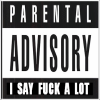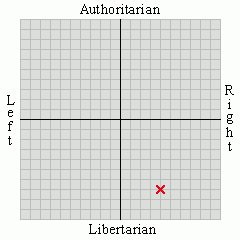Liverpool football legend dices with death by jumping the red light at train crossing.And how many died? Yep, none. Sure, it's a pretty retarded thing to do and as such a fine and points are arguably fair.* But I have to ask why it's necessary to have such a long delay between the lights going red and the actual train passing through. If it was nearly a minute when McDermott (never heard of him incidentally - some legend, though that might say more about what I think of soccer than of McDermott's fame) drove over the line then assuming he didn't miss the train by inches (surely the Mail wouldn't miss that bit out if it had happened) it's not a stretch to say it was considerably more than a minute till the train came. Is this absolutely necessary? A couple of commenters on the Wail article pointed this out and have received little more than a flurry of Pavlovian negative button clicking for their troubles.
[Terry] McDermott was caught on camera ignoring the stop signal, nearly a minute after it went red, in his black Mercedes.
So is it actually necessary? Well, it seems to be pretty common because I can think of at least three level crossings I had to pass regularly when I still lived in the UK and long waits for the train to show up were the norm, so let's assume for the moment that it is. I can even think of reasons why that might be: where the crossing is a long way between stations and/or on an express route the train could be going at quite a lick and several hundred tons of train would obviously take a bit of space to stop. Possibly more space than is available if someone just nipped through the red light and through incredibly bad luck got stuck on the crossing. We know from incidents like Ufton Nervet what can happen then so it makes sense that road traffic is kept off the crossing from the point at which the train can no longer stop in time, plus a small margin for error and environmental conditions such as wet rails. However, if that is the case why the fuck are they pissing about with fucking cameras and fines instead of fitting some fucking barriers?
I'd have thought that automatic barriers are cheap enough that the cost wouldn't be an issue, certainly not if the risk is that bad. For that matter I wouldn't be surprised if it's not much more than the camera system they put in instead. Power can't be a problem because whatever source is used for the cameras could have been used for barriers. So why aren't there any? Why was the preference to install cameras to catch people doing it rather than barriers to prevent them in the first place?
Police revealed they are now issuing more than ten tickets a month to people caught jumping the lights at the site.I'm sure £3,500 and ten' detections' a month have absolutely nothing to do with it.
But what depressed me most is that the Mail article didn't bother to ask this perfectly reasonable question, and the response to those few who did ask it in the comments, with or without accompanying suggestions that fine revenue might be a motive, just generated another round of Pavlovian negative button clicks, and as far as I could see no sensible case put forward for using cameras over barriers. And that makes me wonder if the sneering remarks made be old Red Wedge comedians about 'Daily Mail readers' aren't sometimes a little bit justified after all.
* Bear in mind that, as Gary Hart found out, if someone actually does cause a train crash and deaths he wouldn't be looking at points and fines but more like court and prison. And quite right too.



















